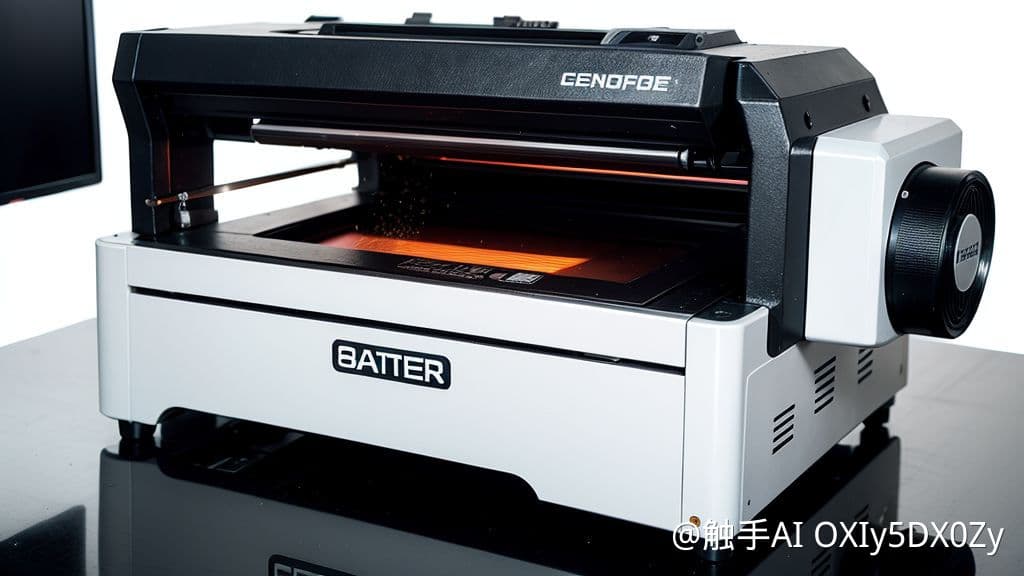a laser engraving machine
Enhancing Business Efficiency with a Laser Engraver Machine
 Engraving refers to a type of printing done on metal plates. Lines are cut on the metal where the ink will be held. A laser engraving machine uses laser technology to engrave on a metal surface or any other surface. They are widespread in industries that want to label/mark manufactured items and are known for their precision and smooth finishes. This article will look at everything businesses should know about laser engraving machines.
Engraving refers to a type of printing done on metal plates. Lines are cut on the metal where the ink will be held. A laser engraving machine uses laser technology to engrave on a metal surface or any other surface. They are widespread in industries that want to label/mark manufactured items and are known for their precision and smooth finishes. This article will look at everything businesses should know about laser engraving machines.
Demand and Market Share for Laser Engraving Machines
In 2020, the global market share of laser engraving machines was US$ 2.76 billion. The adoption of laser engraving machines is driven partly because of the benefits they offer in the automation of industries. The most notable of these is the medical field, which has recently experienced an upward surge in laser engraving technologies. Their reliability, effectiveness, and uniqueness of production are reasons that will drive their adoption even further.
Factors to Consider When Buying a Laser Engraver Machine
Throughput of the Engraving Machine
It refers to parts processed per hour. The speed with which the engraving machine works will directly affect business sales, whether the volume of work is low or high. This, in turn, gives the business an edge in that it can offer lower prices to its customers.
Table Size of Processing
The table size determines the size of the object engraved. A smaller table size translates to smaller objects engraved, while a more extensive table will allow bigger objects to be engraved. The table sizes range from 300mm x 200mm while larger tables can be as big as 1600mm x 900mm. Depending on the object size businesses want to engrave, they can choose a suitable engraving machine.
Applicable Material of the Engraving Machine
Engraving machines can work with several materials. Plastic, paper, metal, acrylic, and wood can be used during engraving. Businesses should consider the material they will be engraving before purchasing because engravers specialize in different materials.
Brand of Key Components
Before businesses purchase an engraving machine, they should consider well-established and reputable brands. This is to find quality and market-approved engraving machines. Besides this, a clear on-site demonstration of the engraver should be made to businesses to ascertain its effectiveness.
Types of Laser Engraving Machines
Laser engravers can be roughly divided into non-metal laser engraving machines (CO2 laser engraving machine) and metal laser engraving machines (fiber laser engraving machine). Each type has its own set of applications and advantages.
The Target Market for Laser Engraving Machines
Laser marking machines are mostly used in aerospace, automotive, medical, electronics, and semiconductors industries. The versatility and precision of laser engraver machines make them ideal for these high-demand sectors.
Applications of Laser Engraving
Laser engraving is used to mark parts and products in different industries, such as:
- Aerospace
- Jewelry
- Medical
- Automotive
- Fine arts
- Electronics
- Semiconductor
Advantages of Laser Engraving
Laser engraving is a process where the laser beam physically removes the surface of the material to expose a cavity that reveals an image at eye level.
- This creates a cavity in the surface that is noticeable by sight and touch.
- The process is quick as the excess material is vaporized with each pulse.
- Several passes may be needed to make deeper marks in the material.
- The laser creates extremely high temperatures during the engraving process, which essentially causes the material to melt and then vaporize.
Comparing Laser Engraving to Traditional Engraving
Laser engraving provides more font options, can be done on several materials, and is more legible than traditional engraving on small objects such as jewelry. Laser engraving machines are faster than traditional methods and there is much less chance of the product being damaged or deformed.
Conclusion
Laser engraving machines are indispensable tools in various industries due to their precision, efficiency, and versatility. Whether for marking, cutting, or engraving, these machines offer a high degree of customization and quality. As technology advances, the adoption and application of laser engraver machines are expected to grow, further solidifying their place in modern manufacturing and production processes.